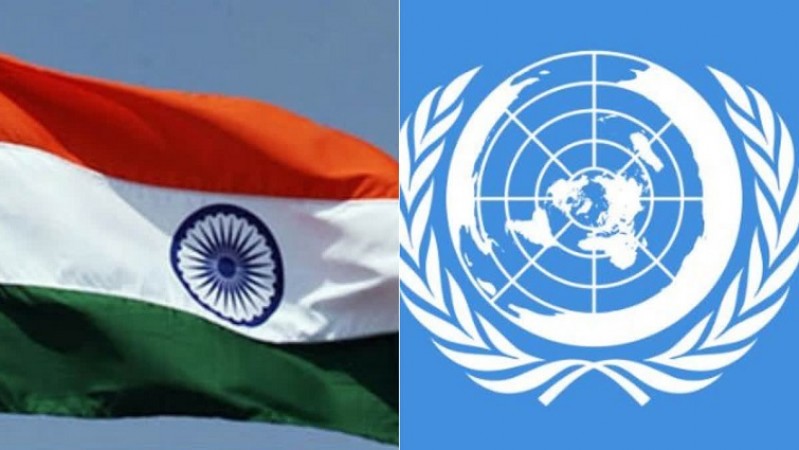
New Delhi, India - In a notable decision, India abstained from voting on a United Nations General Assembly (UNGA) resolution aimed at achieving an immediate humanitarian ceasefire in the ongoing Israel-Hamas conflict. India provided a comprehensive explanation for its stance in the UNGA.
The resolution, titled 'Protection of civilians and upholding legal and humanitarian obligations,' was drafted by Jordan and called for an immediate humanitarian truce in the Israel-Hamas conflict, along with unhindered humanitarian access to the Gaza Strip.
India's Deputy Permanent Representative to the UN, Ambassador Yojna Patel, stressed that terrorism is a global issue that transcends borders, nationalities, and races. India firmly rejected any form of justification for acts of terror and emphasized that violence should not be employed as a means to attain political objectives.
Ambassador Patel further highlighted that the international community should be deeply concerned when resorting to violence, especially when it occurs on a scale that contradicts basic human values. Although the Hamas group was not explicitly mentioned, Patel condemned the terror attacks that occurred in Israel on October 7 and called on the world to adopt a zero-tolerance approach to terrorism.
India expressed its hope that the discussions in the General Assembly would convey a resolute message against terrorism and violence, while also opening doors for diplomacy and dialogue to address the humanitarian crisis at hand. Patel underscored the need for all parties involved to act responsibly and avoid escalating hostilities, which would exacerbate the ongoing humanitarian crisis.
Furthermore, Patel reiterated India's consistent support for a negotiated two-state solution to the Israel-Palestine conflict, leading to the establishment of a sovereign, independent, and viable Palestinian state living alongside Israel in peace within secure and recognized borders. She urged the involved parties to renounce violence and work toward creating conditions conducive to the early resumption of direct peace negotiations.
Details of the UNGA Resolution
The UNGA resolution, adopted by its 193 member states, called for an immediate, durable, and sustained humanitarian truce leading to a cessation of hostilities. It also demanded the immediate, continuous, sufficient, and unhindered delivery of essential goods and services to civilians throughout the Gaza Strip.
Notably, the resolution did not explicitly mention the Hamas militant group. It called for immediate, full, sustained, safe, and unhindered humanitarian access for the United Nations Relief and Works Agency for Palestine Refugees in the Near East (UNRWA) and other United Nations humanitarian agencies and their implementing partners, the International Committee of the Red Cross, and all other humanitarian organizations upholding humanitarian principles and providing urgent assistance to civilians in the Gaza Strip. The resolution also encouraged the establishment of humanitarian corridors and other initiatives to facilitate the delivery of humanitarian aid to civilians.
Voting on the Resolution
The UNGA resolution received 121 votes in favor, 44 abstentions, and 14 member states voted against it. Notably, Israel and the United States voted against the resolution, while China, France, and Russia voted in favor of it. In addition to India, Canada, Germany, Japan, Ukraine, and the United Kingdom chose to abstain from voting.
India's abstention from the resolution has generated significant discussion, as it underscores the complexities and global implications of the Israel-Hamas conflict.
Gaza-Israel: A Closer Look at the Border Breached During Hamas Attack on Israel
Intensified Airstrikes, Communication Disruption, and More Mark Israel-Gaza Conflict's 22nd Day